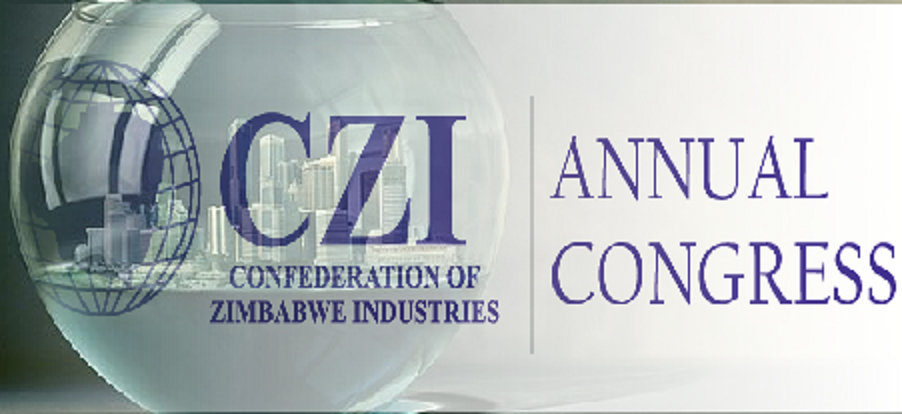THE Confederation of Zimbabwe Industries (CZI) is lobbying government to lower power tariffs which it cites as one of the factors triggering recent commodity price increases.
This comes amid a proposal by power utility Zesa to hike electricity charges to 14,6 US cents per kilowatt hour (kWh). Currently, power tariffs in Zimbabwe hover around US$0,10 per kWh against regional electricity charges pegged at US$0,5 per kWh.
In 2017, proposals by the loss-making Zesa to hike tariffs so it could "break even" were turned down by the Zimbabwe Energy Regulatory Authority (Zera).
Towards the end of last year, various commodity prices rose steeply, with the country's manufacturing sector citing acute foreign currency shortages and higher power tariffs as the key factors pushing up the cost of goods.
In Zambia and Ethiopia, power tariffs are pegged at US$0,5 per kWh and US$0,6 per kWh respectively, amid concerns by local manufacturers that steep electricity charges in Zimbabwe were pushing up the prices of locally manufactured products.
In a wide ranging interview last week, CZI president Sifelani Jabangwe said exorbitant power tariffs, coupled with erratic supplies, were increasing the cost of doing business in Zimbabwe.
Investment analysts have often cited the cost of power tariffs as one of the key determinants guiding where an investor sets up.
"With regards to power, this is something we have been stating for a long time. We are targeting a power tariff proposal. In Zambia, with their industries coming up, they are getting power for US$0,5 per kWh, and it is also the same in Ethiopia," Jabangwe said.
"At the moment, we are currently being charged 9,6 US cents per kWh. We want to push for a lower power tariff."
He noted that local industries were passing on the high cost of electricity to consumers.
Jabangwe also said the high cost of other key utilities — such as water, which is priced at about US$80 per 1 000 litres in Zimbabwe were unsustainable and pushing up production costs.
In neighbouring Zambia, the cost of 1 000 litres of water is pegged at US$2.
"The cost of water is also much higher in comparison with fellow industries in the region," he said, adding that local industries were lobbying government to cut the costs.
As power demand continues to swell, BMI Research, a regional think-tank, projected that Zimbabwe's electricity consumption would soar to 8,600 terawatt hour (tWh) against a generation capacity of 5,686tWh.
Zimbabwe, which is battling to generate sufficient power, has been relying on imports particularly from neighbouring South Africa and Mozambique to meet its consumption needs.
However, in May last year, Eskom of South Africa threatened to switch off Zimbabwe from its power grid over US$43 million arrears for electricity imports.
The southern African country also owed Hydro Cahora Bassa money running into millions of dollars in arrears for power imports.
BMI forecasts that Zimbabwe's power deficit, which is set to be bridged through imports, would soar to 2,914tWh.
By 2020, Zimbabwe is projected to import at least 2,508 tWh while consumption will soar to 9,7000 tWh.
Local power generation is however expected to increase this year, on the back of the completion of the Kariba South expansion project which is set to contribute an additional 300 megawatts to the national grid.
In the CZI 2017 Manufacturing Survey, the high power tariff was cited as one of the factors pushing the cost of doing business in Zimbabwe.
The cost of power accounts for at least 5% of manufacturers' cumulative production costs.
Apart from steep power tariffs, Zimbabwe's industries are also battling to secure scarce foreign currency to source key raw materials required to sustain operations.
- the independent
 Concern over Masvingo black market
Concern over Masvingo black market  Kenya declares three days of mourning for Mugabe
Kenya declares three days of mourning for Mugabe  UK's Boris Johnson quits over Brexit stretegy
UK's Boris Johnson quits over Brexit stretegy  SecZim licences VFEX
SecZim licences VFEX  Zimbabwe abandons debt relief initiative
Zimbabwe abandons debt relief initiative  European Investment Bank warms up to Zimbabwe
European Investment Bank warms up to Zimbabwe  Young Investment Professional (YIP) Graduate Programme 2019
Young Investment Professional (YIP) Graduate Programme 2019 











 Young Investment Professional (YIP) Graduate Programme 2019
Young Investment Professional (YIP) Graduate Programme 2019
Editor's Pick